Find Help
More Items From Ergsy search
-
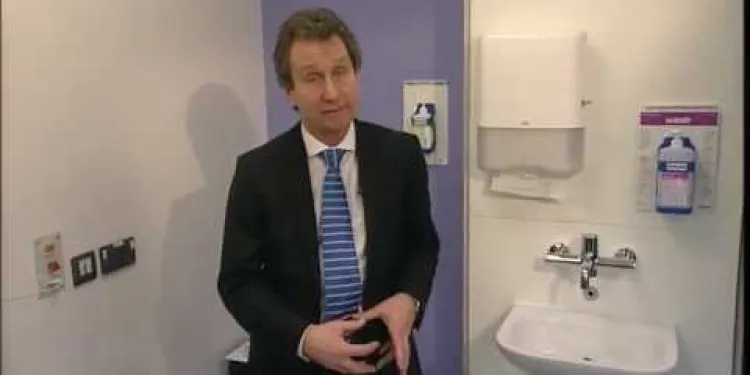
Hernias and their Treatments - A guide for patients
Relevance: 100%
-
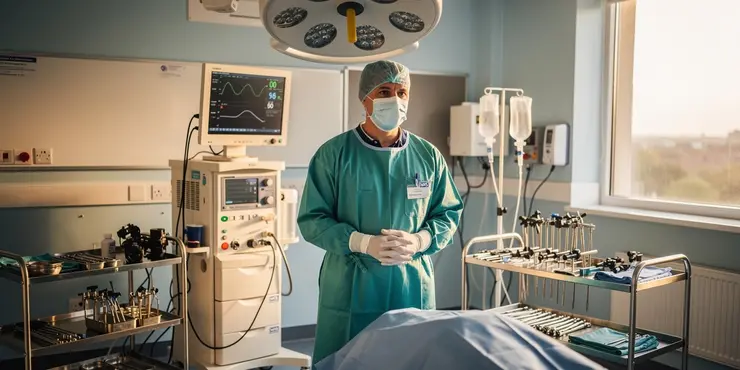
What is the treatment for appendicitis?
Relevance: 27%
-
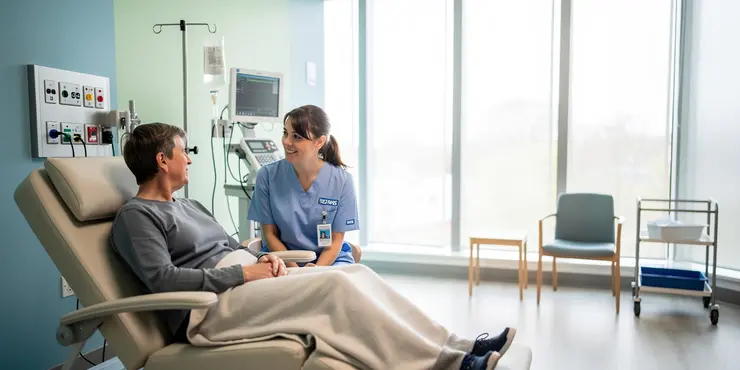
Having chemotherapy and other treatments in the Day Treatment Unit
Relevance: 24%
-
Is there a treatment for measles?
Relevance: 23%
-
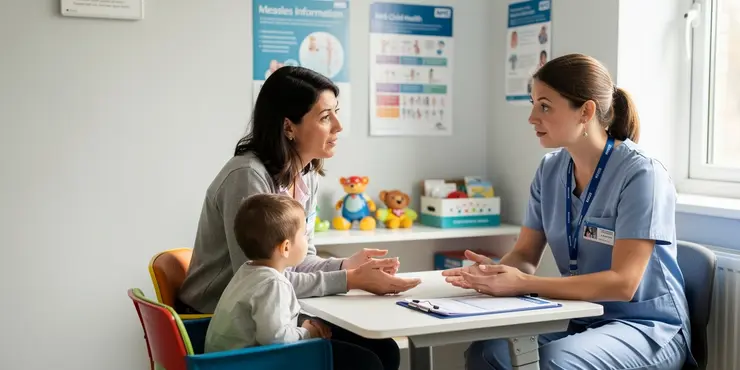
Is there a treatment for measles?
Relevance: 23%
-
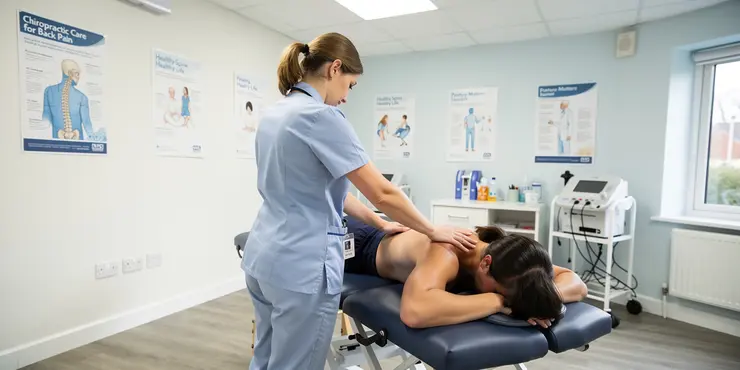
Are chiropractic treatments safe?
Relevance: 23%
-
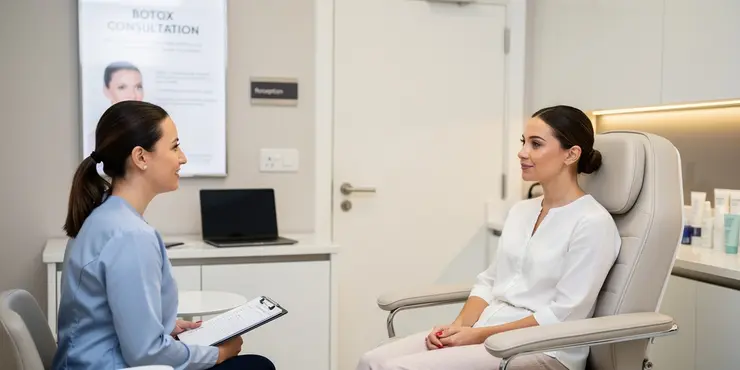
Is Botox treatment expensive?
Relevance: 23%
-
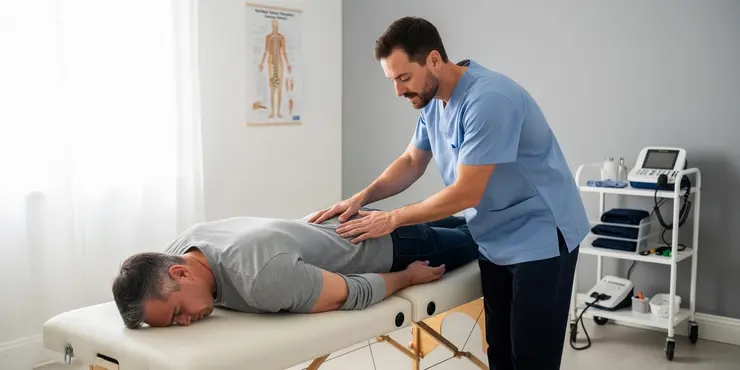
Are chiropractic treatments painful?
Relevance: 23%
-

Eating disorders: treatment
Relevance: 23%
-
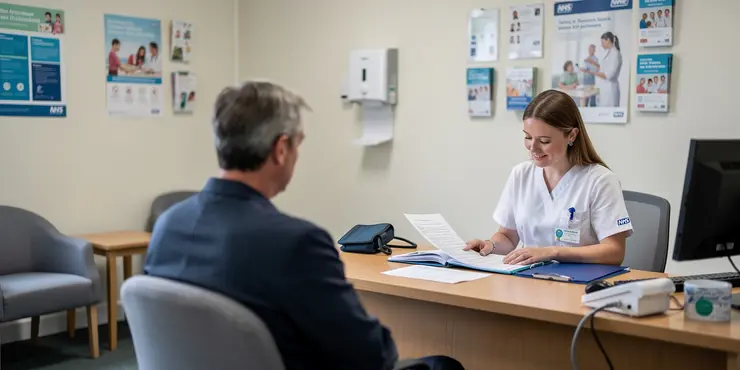
Is Paillon treatment a form of chemotherapy?
Relevance: 22%
-
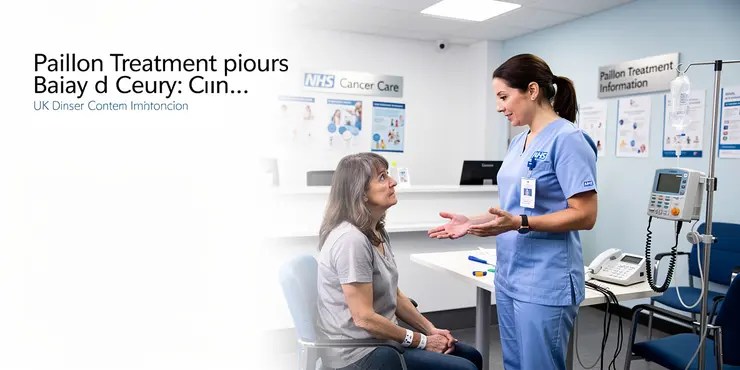
What is Paillon treatment for cancer?
Relevance: 22%
-
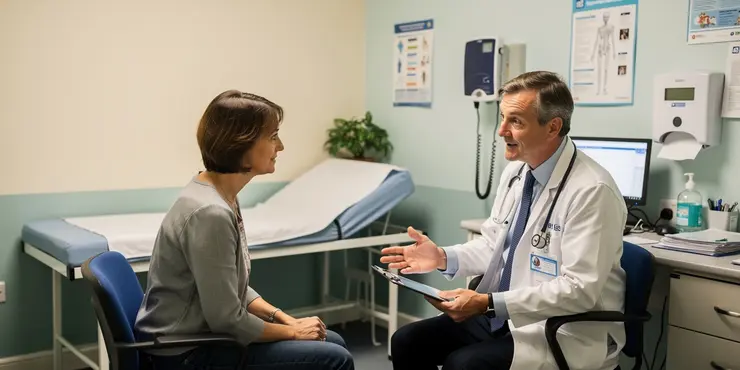
Who developed the Paillon treatment?
Relevance: 22%
-
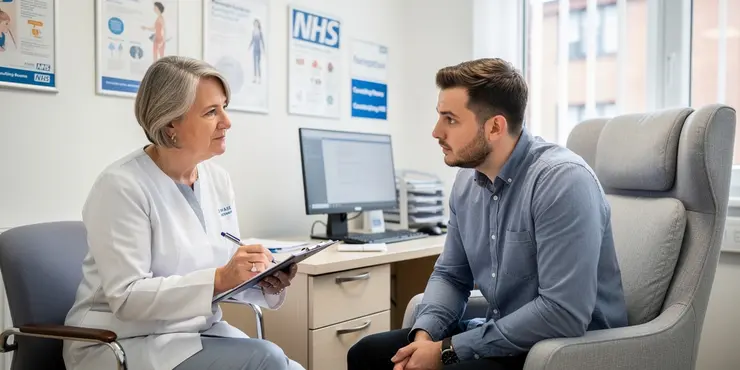
How is Paillon treatment administered?
Relevance: 22%
-
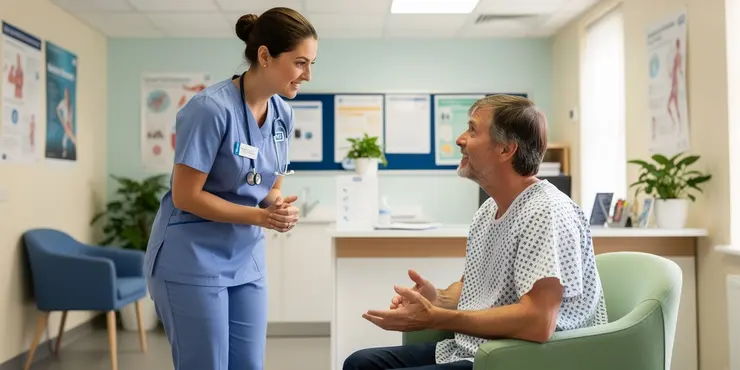
BSL - Treatments for insomnia
Relevance: 22%
-
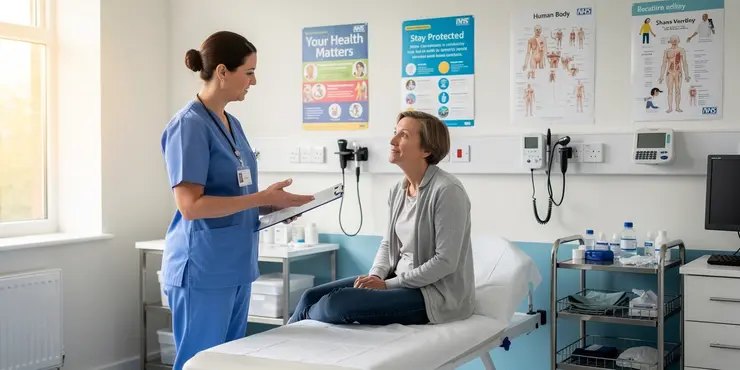
Is Paillon treatment FDA approved?
Relevance: 22%
-
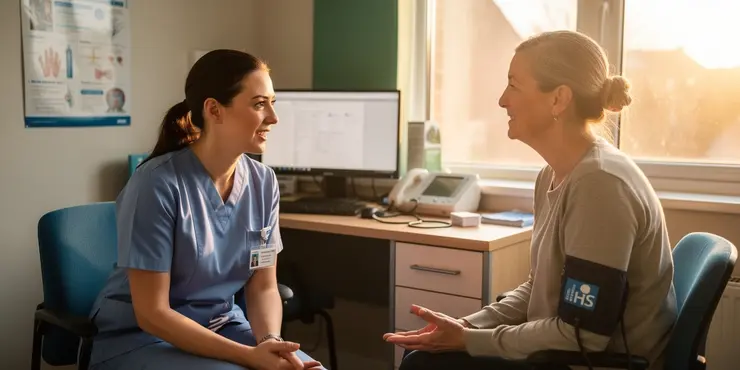
Is a prescription required for Paillon treatment?
Relevance: 22%
-
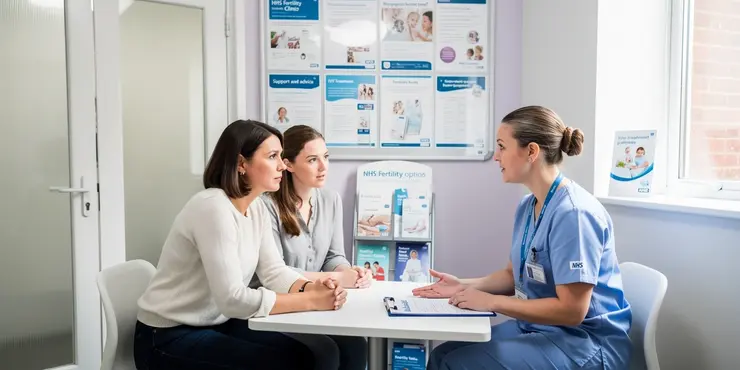
Fertility treatments on the up, but not via the NHS
Relevance: 22%
-
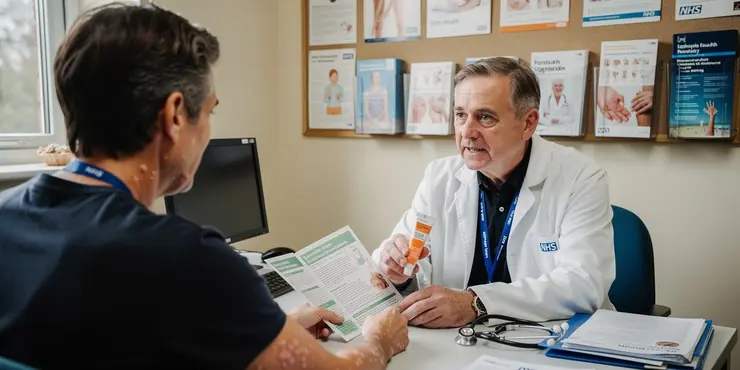
What are topical treatments for psoriasis?
Relevance: 22%
-
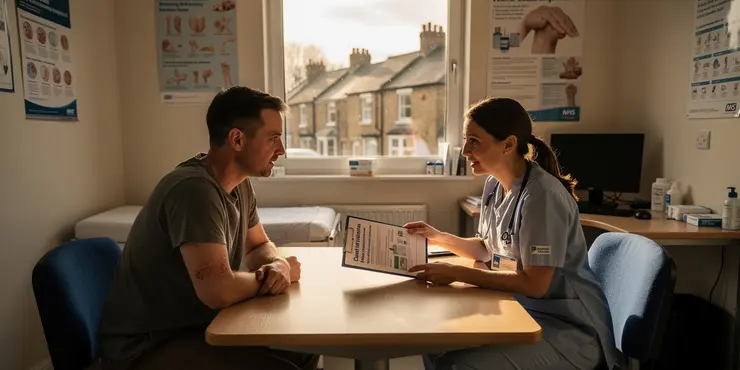
What treatments are available for eczema?
Relevance: 22%
-
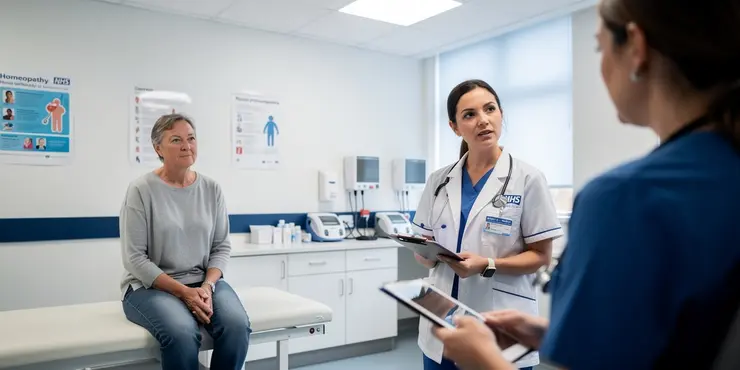
Are homeopathic treatments covered by the NHS?
Relevance: 22%
-
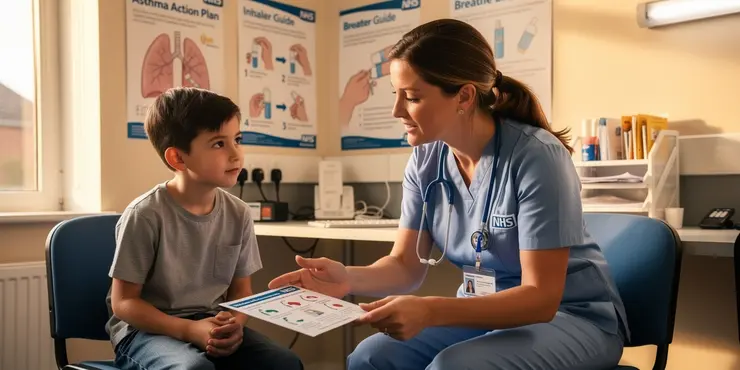
Are inhalers the only treatment for asthma?
Relevance: 22%
-
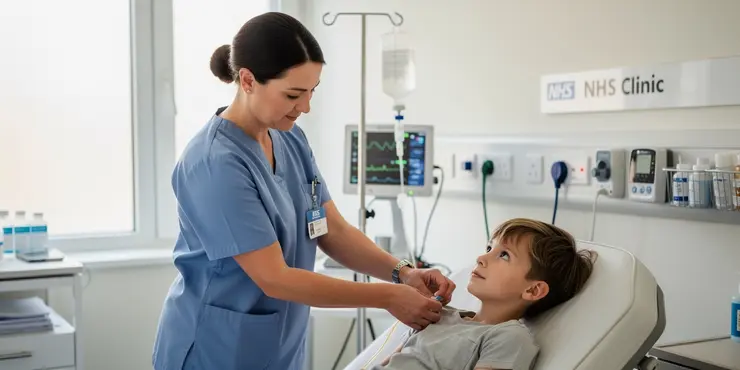
What is the treatment for bacterial meningitis?
Relevance: 22%
-
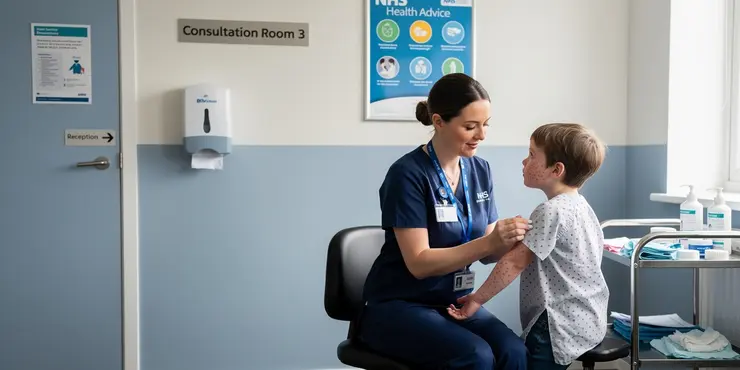
What is the treatment for chickenpox?
Relevance: 22%
-
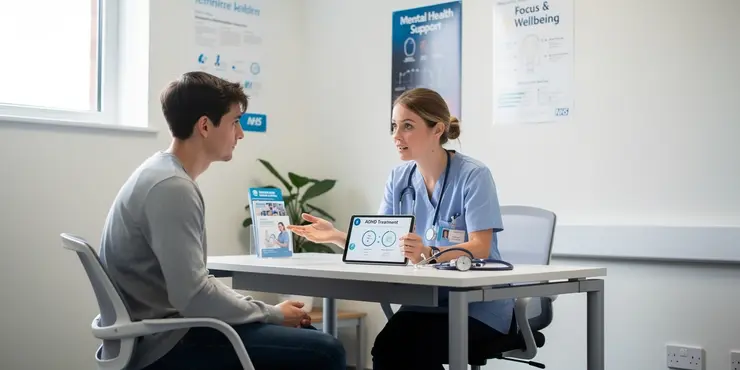
What are common treatments for ADHD?
Relevance: 22%
-
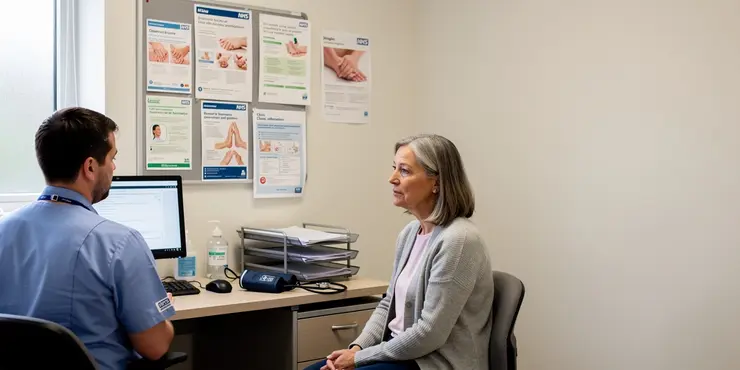
What treatments are available for shingles?
Relevance: 22%
-
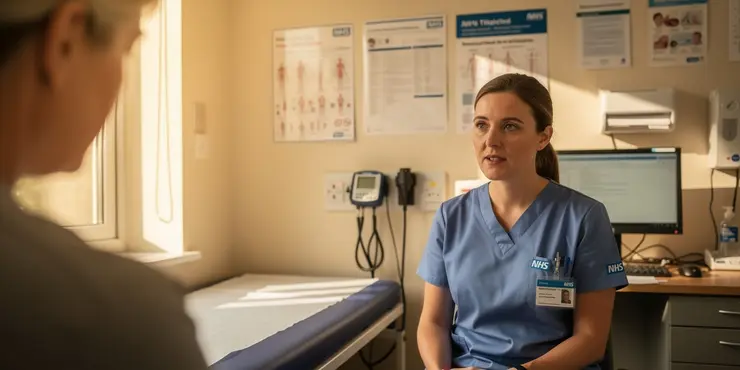
What treatments are available for shingles?
Relevance: 21%
-
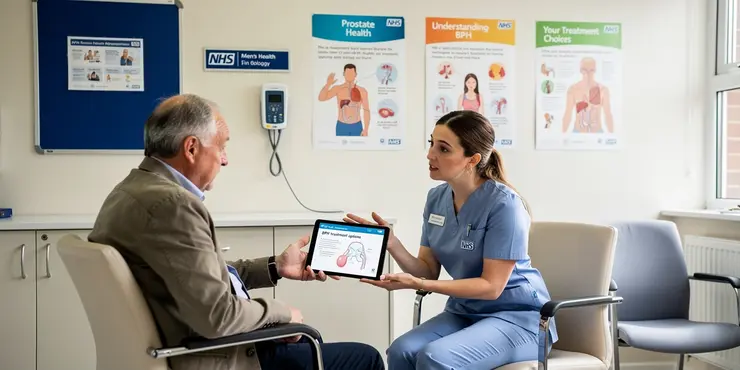
What are the treatment options for BPH?
Relevance: 21%
-
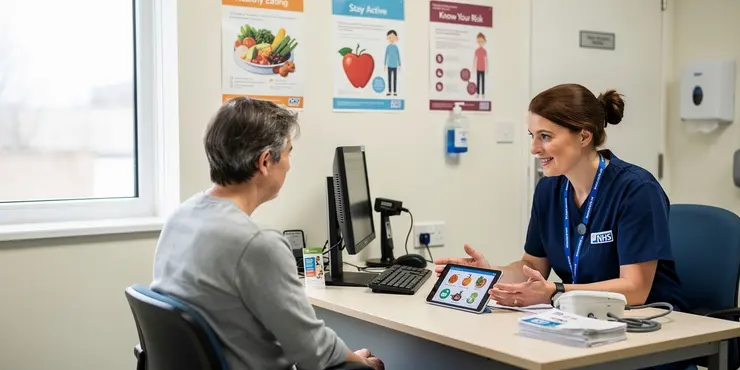
What treatments are available for obesity?
Relevance: 21%
-
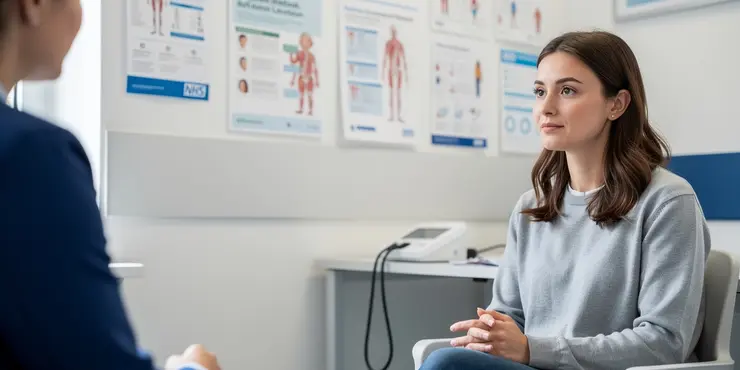
The treatment approach for an eating disorder
Relevance: 21%
-
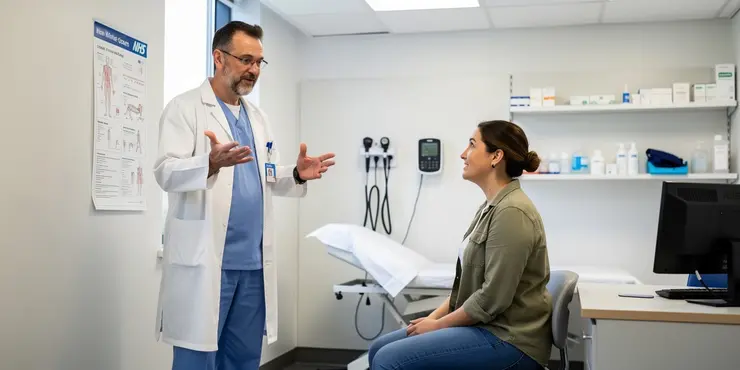
Are there treatments for West Nile Virus?
Relevance: 21%
-
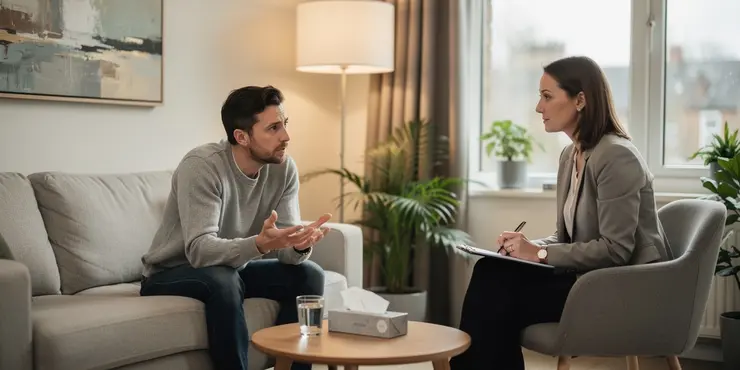
BSL - Treatment of panic disorder
Relevance: 21%
-
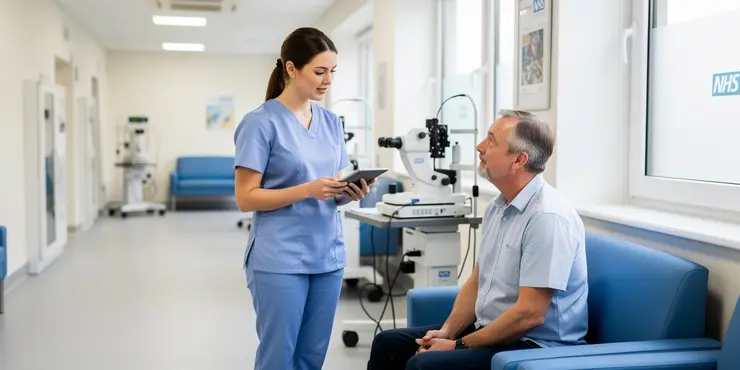
What treatments are available for hypotony?
Relevance: 21%
-
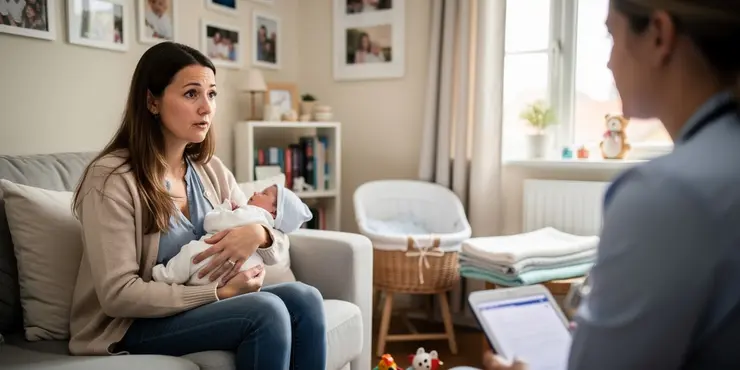
Are there treatments available for postnatal depression?
Relevance: 21%
-
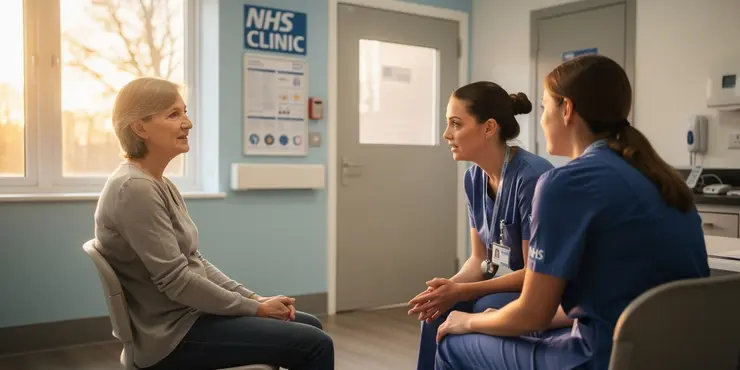
What are the success rates of Paillon treatment?
Relevance: 21%
-

What is the new treatment for hepatitis C like?
Relevance: 21%
-
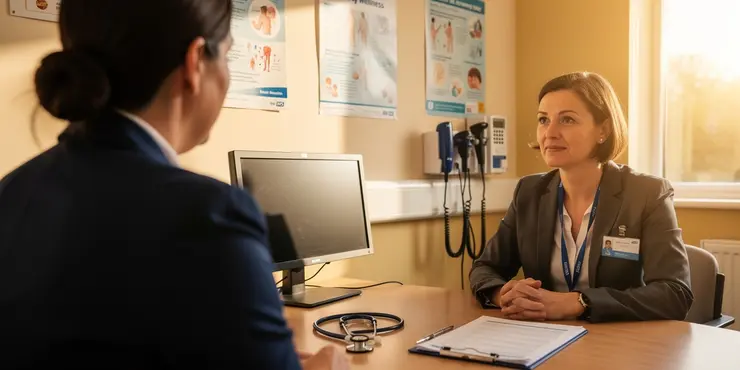
What are the costs associated with Paillon treatment?
Relevance: 21%
-
Can I receive specialized treatment in EU countries?
Relevance: 21%
-
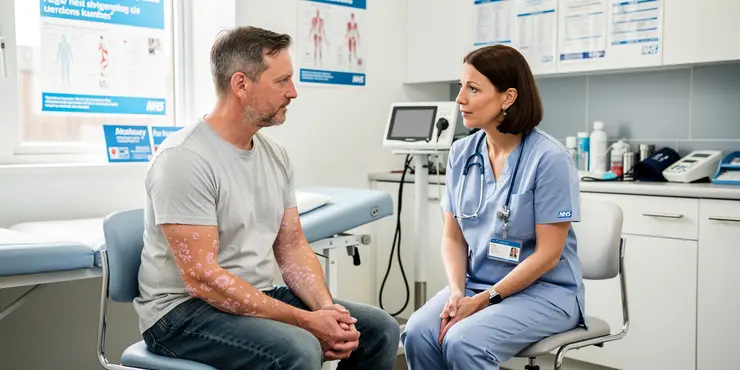
What treatment options are available for psoriasis?
Relevance: 21%
-
Are there any treatments available for tinnitus?
Relevance: 21%
-
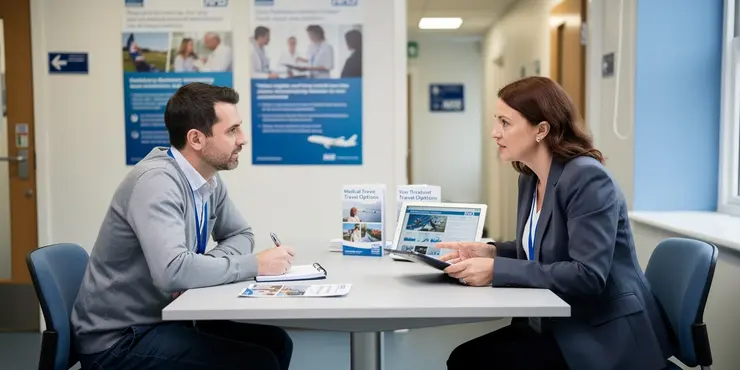
Can I travel to EU countries for medical treatment?
Relevance: 21%
Hernias and their Treatments - A Guide for Patients
Understanding Hernias
A hernia occurs when an internal part of the body pushes through a weakness in the muscle or surrounding tissue wall. Common areas affected are the abdomen, groin, and upper thigh. Symptoms can include a visible bulge, discomfort, or pain, particularly when lifting heavy objects or straining. In the UK, hernias are relatively common and can affect individuals of all ages.
Types of Hernias
There are several types of hernias, including:
- Inguinal hernia: Occurs in the groin area and is more common in men.
- Femoral hernia: Also occurs in the groin, typically affecting older women.
- Umbilical hernia: Appears around the navel and is common in infants but can affect adults too.
- Hiatus hernia: Part of the stomach pushes up into the chest through an opening in the diaphragm.
Diagnosis and When to Seek Help
If you suspect a hernia, it is essential to seek medical advice. Doctors can diagnose a hernia through a physical examination and, if necessary, imaging tests such as an ultrasound, CT scan, or MRI. Early diagnosis and treatment can help prevent complications such as obstruction or strangulation of the affected tissue.
Treatment Options
Treatment depends on the type and severity of the hernia. Options include:
- Watchful waiting: For small, asymptomatic hernias, monitoring can be an option.
- Hernia repair surgery: The most common treatment, where the hernia is returned to its correct position and the weakness in the muscle wall is repaired. This can be done using open surgery or minimally invasive techniques such as laparoscopic surgery.
- Lifestyle changes: In cases such as hiatus hernia, dietary modifications and medications to reduce stomach acid can help manage symptoms.
Post-Treatment Care
After surgery, it is crucial to follow your healthcare provider's instructions for a smooth recovery. This may include avoiding strenuous activities, maintaining a healthy weight, and taking prescribed medications to manage pain and prevent infection. Attending follow-up appointments is also important to ensure proper healing.
Conclusion
Hernias, though common, can be effectively managed with appropriate treatment. Early diagnosis and intervention are key to preventing complications. Patients in the UK should consult their GP for advice on the best course of action if they suspect a hernia.
Hernias and their Treatments - A Guide for Patients
What is a Hernia?
A hernia happens when an inside part of the body pushes through a weak spot in the muscle or tissue. It often happens in the belly, the groin, and the top of the leg. You might see a lump or feel pain, especially when lifting something heavy. Many people in the UK have hernias, and they can happen at any age.
Different Types of Hernias
There are different kinds of hernias:
- Inguinal hernia: Happens in the groin area, mostly in men.
- Femoral hernia: Also in the groin, mostly in older women.
- Umbilical hernia: Around the belly button, common in babies but adults can have it too.
- Hiatus hernia: The stomach pushes up into the chest through the diaphragm.
When to See a Doctor
If you think you have a hernia, go to a doctor. They can find out if you have a hernia by looking at where it hurts and may use tests like an ultrasound. Finding and treating a hernia early is important to stop more problems.
How Are Hernias Treated?
Treatment depends on how bad the hernia is:
- Watch and wait: If the hernia is small and does not hurt, doctors may just watch it for changes.
- Surgery: This is the most common way to fix a hernia. The doctor will put the hernia back in its place and fix the weak muscle. This can be done with regular surgery or a small camera.
- Change what you eat: For some hernias like hiatus hernia, changing your diet or taking medicine may help.
Taking Care After Treatment
After the surgery, follow the doctor's advice to get better. Do not do heavy work, keep a healthy weight, and take any medicine they give you. Make sure to go to all follow-up visits with the doctor.
Conclusion
Hernias can be managed and treated well. Getting it checked early is important to stop more problems. If you think you have a hernia in the UK, talk to your doctor to find out what to do.
Frequently Asked Questions
What is a hernia?
A hernia occurs when an internal part of the body pushes through a weakness in the muscle or surrounding tissue wall.
What are the common types of hernias?
Common types include inguinal (groin), femoral (thigh), umbilical (near the belly button), and hiatal (upper stomach) hernias.
What causes a hernia?
Hernias are often caused by a combination of muscle weakness and strain. Factors can include heavy lifting, chronic coughing, obesity, pregnancy, and straining during bowel movements or urination.
What are the symptoms of a hernia?
Symptoms can include a noticeable lump or bulge, pain or discomfort at the affected site, especially when bending over or lifting, and sometimes digestive issues.
How is a hernia diagnosed?
A hernia can often be diagnosed with a physical examination. In some cases, imaging tests such as an ultrasound, CT scan, or MRI might be required.
Do all hernias require surgery?
Not all hernias require surgery immediately. Some may be monitored if they are asymptomatic, but surgery is generally recommended to prevent complications like strangulation.
What are the treatment options for hernias?
Treatment options typically include watchful waiting for small, asymptomatic hernias and surgical repair, which can be done via open surgery or laparoscopic (keyhole) surgery.
What is laparoscopic surgery?
Laparoscopic surgery, also known as keyhole surgery, is a minimally invasive technique that uses small incisions and a camera to repair the hernia.
What are the risks of hernia surgery?
Risks can include infection, bleeding, pain, damage to surrounding tissues, and a risk of recurrence. However, serious complications are rare.
How long does it take to recover from hernia surgery?
Recovery times can vary. Generally, patients can return to light activities after a few days and resume strenuous activities in about 4 to 6 weeks.
Can hernias come back after surgery?
While hernia recurrence can happen, it is relatively uncommon, especially with modern surgical techniques and proper post-operative care.
Are there non-surgical treatments for hernias?
Non-surgical treatments like wearing a truss or binder can manage symptoms but do not treat the hernia itself. Surgery is usually the only effective treatment.
Can lifestyle changes prevent hernias?
Maintaining a healthy weight, avoiding heavy lifting, quitting smoking, and treating chronic coughs or constipation can reduce the risk of developing a hernia.
How soon should I see a doctor if I suspect I have a hernia?
It's advisable to see a doctor as soon as you suspect a hernia to assess its severity and determine the appropriate treatment.
Does the NHS cover hernia surgery?
Yes, hernia surgery is generally covered by the NHS in the United Kingdom. However, there may be waiting times depending on the severity and urgency of the case.
What is a hernia?
A hernia is a lump in your body. It happens when something inside pushes out through a weak spot. It can happen in your belly or other places.
Signs of a hernia can be pain or seeing a bump.
If you think you have a hernia, tell a grown-up or a doctor. They can help you feel better.
Tools that can help:
- Pictures: Use pictures to learn more about hernia.
- Videos: Watch simple videos that explain what a hernia is.
- Ask for help: Ask a helper, like a family member or a teacher, to read with you.
A hernia happens when a part of the body pushes through a weak spot in the muscle or tissue wall. It’s like when something pokes through a hole in a piece of cloth.
What are the common types of hernias?
A hernia happens when part of your body, like your intestines, pushes through a weak spot. Here are some common types of hernias:
- Inguinal hernia: This is the most common kind. It happens in the groin area.
- Hiatal hernia: This happens when part of your stomach pushes up into your chest.
- Umbilical hernia: This happens near your belly button. It is common in babies.
- Incisional hernia: This can happen if you have had surgery before. It can occur where you have a scar.
To help understand better, try using pictures or models of the body. Talking to a doctor can also help a lot.
There are different types of hernias. Some happen in the groin, called inguinal hernias. Others can be in the thigh, and these are femoral hernias. There are hernias near your belly button, called umbilical hernias. A hiatal hernia is near the top of your stomach.
To help understand this, you can use pictures to see where these hernias happen in the body.
What makes a hernia happen?
A hernia happens when an inside part of your body pushes through a weak spot in your muscle or tissue.
Here are some things that can make a hernia happen:
- Lifting heavy things.
- Coughing a lot.
- Being too heavy (overweight).
- Pushing too hard in the bathroom.
If you think you might have a hernia, you should talk to a doctor. They can help you understand and feel better.
Some helpful tips and tools you can use are:
- Ask someone to read it for you if you're stuck.
- Look at pictures of what a hernia is.
- Watch a simple video about hernias.
Hernias happen when muscles are weak and get too much strain. This can happen if you lift heavy things, cough a lot, are too heavy, are pregnant, or push too hard when going to the toilet.
What are the signs of a hernia?
A hernia can make a bump or lump in your tummy or groin. It might hurt and feel sore. The bump can get bigger when you cough or lift things. Sometimes, you might only see the bump when you stand up. If the bump gets smaller when you lie down, it could be a hernia.
Here are some tools and tricks to help you:
- Use pictures to better understand the signs of a hernia.
- Ask someone to explain the signs to you in simple words.
- Watch videos about hernias for easier understanding.
You might see a bump or swelling. It could hurt or feel uncomfortable, especially if you bend over or lift things. Sometimes, it can also make your tummy feel upset.
How does the doctor know if you have a hernia?
Doctors can find a hernia by checking your body. Sometimes, they need to use machines to take pictures inside your body. These machines are called ultrasound, CT scan, or MRI.
Do all hernias need surgery?
A hernia is when a part inside your body pushes through a weak spot. Some hernias need an operation to fix them, but not all.
Here are some tips to understand better:
- If the hernia hurts a lot, see a doctor.
- If it gets bigger, tell an adult to help you.
- Some hernias can be watched to see if they change.
If you have trouble reading, ask someone to help. You can also use tools that read the words out loud for you.
Not all hernias need surgery right away. Some hernias can be watched if they do not hurt or cause problems. But, doctors usually suggest surgery to stop serious problems.
How can doctors fix a hernia?
If you have a small hernia that doesn't hurt, sometimes the best thing to do is to just keep an eye on it. This is called watchful waiting.
If the hernia needs to be fixed, a doctor can do this with surgery. There are two ways to do the surgery: open surgery, where they make a big cut, or keyhole surgery, where they make a few small cuts.
What is laparoscopic surgery?
Laparoscopic surgery is a way that doctors do an operation.
Instead of a big cut, doctors make small cuts in the belly.
They use a special tool with a camera to see inside.
This helps you get better faster and have less pain.
If you want to know more, ask your doctor or look for pictures and videos online.
Laparoscopic surgery is a kind of surgery. It is also called keyhole surgery. This is because it uses small cuts and a tiny camera. Doctors use this to fix the hernia without big cuts.
What can happen if you have a hernia operation?
Having a hernia operation can help fix the problem, but there are some things that might happen after.
- You might feel sore or hurt where the operation was done.
- You could get an infection, which is when germs make you sick.
- The hernia might come back, and you might need another operation.
- There might be a little bleeding inside the body.
If you have questions, you can ask a doctor or someone you trust to help explain.
When you have a medical procedure, some things can go wrong. These are called risks. Here are some things that might happen:
- You could get an infection. This means germs might get into your body and make you sick.
- There might be some bleeding. This could happen where the doctor worked on your body.
- You might feel pain. This is how your body tells you something is wrong.
- The procedure might hurt other parts around the area.
- The problem might come back even after the procedure.
But don't worry too much. Big problems are not common. They don't happen often.
It helps to talk to your doctor if you’re worried. You can ask them to explain things clearly. It’s also good to have a friend or family member with you. They can help you understand what is going on.
How long does it take to get better after hernia surgery?
People get better at different times. You might feel okay to do easy things after a few days. You can do hard things again in about 4 to 6 weeks.
It can help to use pictures or drawings to understand this. You can also use a calendar to mark when you can do more. If you have a helper or a friend, you can ask them to remind you of these times.
Can hernias come back after surgery?
A hernia can sometimes come back after an operation. This means it is important to be careful after surgery. Your doctor can tell you how to avoid the hernia coming back. You might need to avoid heavy lifting and follow their advice.
If you have questions, it is good to ask your doctor. They can give you the best advice for staying healthy. You can also use reminders to help you follow doctor’s orders. It's okay to ask for help from family or friends if you need it.
A hernia can come back after surgery, but it doesn't happen a lot. Doctors have new ways to fix hernias, and they give good advice on how to take care of yourself after the surgery.
Can hernias be treated without surgery?
Yes, there are ways to help a hernia without an operation. Here are some things you can try:
- Wear a special belt: A hernia belt can help hold the hernia in place.
- Avoid heavy lifting: Do not lift heavy things to stop the hernia from getting worse.
- Eat healthy food: A good diet can help you stay strong and avoid straining.
It is important to talk to a doctor. They can help you find the best way to manage a hernia. You can also ask someone you trust for support, like a family member or friend.
Doctors can help with a hernia by giving you special clothes to wear, called a truss or binder. These clothes can help you feel better, but they do not fix the hernia. Usually, only an operation can fix it.
It's a good idea to talk to a doctor to know what is best for you. They can explain things in a way that is easy to understand. You can also try using pictures or videos to learn more about hernias.
Can changes in daily habits stop hernias?
Some changes in what you do every day can help stop hernias from happening. Here are a few tips:
- Lift things safely. Bend your knees, not your back.
- Eat healthy foods. This helps keep your weight good.
- Exercise often. It keeps your body strong.
- Don’t smoke. Smoking is bad for your muscles.
- If you often cough or sneeze, see a doctor.
You might also want to talk to a doctor or a helper if you need more support.
Here are some ways to help stop a hernia:
- Stay at a healthy weight.
- Don't lift heavy things.
- Stop smoking.
- If you have a bad cough, get help.
- If you have trouble going to the toilet, talk to a doctor.
If you need help reading, try using audiobooks or text-to-speech tools. They can read the words out loud for you.
When should I visit a doctor if I think I have a hernia?
If you think you have a hernia, you should visit a doctor soon. It is important to get checked.
Here are some tips:
- Ask someone to go with you for support.
- Write down what you want to tell the doctor.
- Use pictures or drawings to explain how you feel.
It's a good idea to visit a doctor if you think you have a hernia. The doctor will check how serious it is and decide the best way to help you feel better.
Will the NHS pay for a hernia operation?
The NHS can pay for a hernia operation. If you have pain or other problems, talk to your doctor. Your doctor will help you decide if you need the operation.
If you need help to read, you can ask a friend or use tools like a text reader.
Yes, the NHS in the UK can pay for hernia surgery. But, you might have to wait a bit, and it depends on how serious your case is.
Useful Links
This website offers general information and is not a substitute for professional advice.
Always seek guidance from qualified professionals.
If you have any medical concerns or need urgent help, contact a healthcare professional or emergency services immediately.
Some of this content was generated with AI assistance. We’ve done our best to keep it accurate, helpful, and human-friendly.
- Ergsy carfully checks the information in the videos we provide here.
- Videos shown by Youtube after a video has completed, have NOT been reviewed by ERGSY.
- To view, click the arrow in centre of video.
- Most of the videos you find here will have subtitles and/or closed captions available.
- You may need to turn these on, and choose your preferred language.
- Go to the video you'd like to watch.
- If closed captions (CC) are available, settings will be visible on the bottom right of the video player.
- To turn on Captions, click settings .
- To turn off Captions, click settings again.
More Items From Ergsy search
-

Hernias and their Treatments - A guide for patients
Relevance: 100%
-

What is the treatment for appendicitis?
Relevance: 27%
-

Having chemotherapy and other treatments in the Day Treatment Unit
Relevance: 24%
-
Is there a treatment for measles?
Relevance: 23%
-

Is there a treatment for measles?
Relevance: 23%
-

Are chiropractic treatments safe?
Relevance: 23%
-

Is Botox treatment expensive?
Relevance: 23%
-

Are chiropractic treatments painful?
Relevance: 23%
-

Eating disorders: treatment
Relevance: 23%
-

Is Paillon treatment a form of chemotherapy?
Relevance: 22%
-

What is Paillon treatment for cancer?
Relevance: 22%
-

Who developed the Paillon treatment?
Relevance: 22%
-

How is Paillon treatment administered?
Relevance: 22%
-

BSL - Treatments for insomnia
Relevance: 22%
-

Is Paillon treatment FDA approved?
Relevance: 22%
-

Is a prescription required for Paillon treatment?
Relevance: 22%
-

Fertility treatments on the up, but not via the NHS
Relevance: 22%
-

What are topical treatments for psoriasis?
Relevance: 22%
-

What treatments are available for eczema?
Relevance: 22%
-

Are homeopathic treatments covered by the NHS?
Relevance: 22%
-

Are inhalers the only treatment for asthma?
Relevance: 22%
-

What is the treatment for bacterial meningitis?
Relevance: 22%
-

What is the treatment for chickenpox?
Relevance: 22%
-

What are common treatments for ADHD?
Relevance: 22%
-

What treatments are available for shingles?
Relevance: 22%
-

What treatments are available for shingles?
Relevance: 21%
-

What are the treatment options for BPH?
Relevance: 21%
-

What treatments are available for obesity?
Relevance: 21%
-

The treatment approach for an eating disorder
Relevance: 21%
-

Are there treatments for West Nile Virus?
Relevance: 21%
-

BSL - Treatment of panic disorder
Relevance: 21%
-

What treatments are available for hypotony?
Relevance: 21%
-

Are there treatments available for postnatal depression?
Relevance: 21%
-

What are the success rates of Paillon treatment?
Relevance: 21%
-

What is the new treatment for hepatitis C like?
Relevance: 21%
-

What are the costs associated with Paillon treatment?
Relevance: 21%
-
Can I receive specialized treatment in EU countries?
Relevance: 21%
-

What treatment options are available for psoriasis?
Relevance: 21%
-
Are there any treatments available for tinnitus?
Relevance: 21%
-

Can I travel to EU countries for medical treatment?
Relevance: 21%


